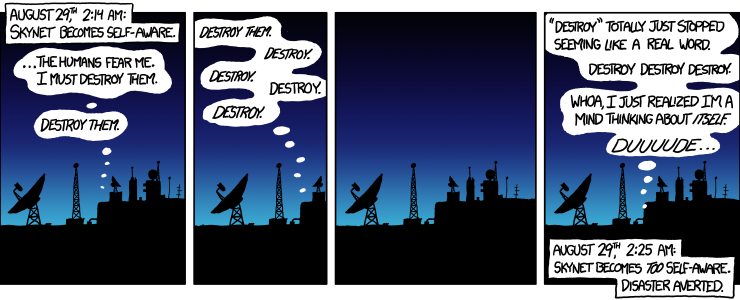Sarah in SC
Moderator Emeritus
Interesting interview in Freakonomics with the authors of Abundance, a new book. This part was the most relevant to my thoughts on ER:
This may seem a fairly future forward opinion, but in a 2011 special report for CNN, media specialist Douglas Rushkoff argued this transition is already underway:
I understand we all want paychecks — or at least money. We want food, shelter, clothing, and all the things that money buys us. But do we all really want jobs?
We’re living in an economy where productivity is no longer the goal, employment is. That’s because, on a very fundamental level, we have pretty much everything we need. America is productive enough that it could probably shelter, feed, educate, and even provide health care for its entire population with just a fraction of us actually working.
Our problem is not that we don’t have enough stuff—it’s that we don’t have enough ways for people to work and prove that they deserve this stuff.
Part of the problem is that most contemporary thinking about money and markets and such has its roots in the scarcity model. In fact, one of the most commonly used definitions of economics is “the study of how people make choices under conditions of scarcity, and the results of those choices for society.
The entire article/Q&A can be read here:
Freakonomics » Abundance Authors Diamandis and Kotler Answer Your Questions
I think I'll put down for the book at the library--sounds interesting.
This may seem a fairly future forward opinion, but in a 2011 special report for CNN, media specialist Douglas Rushkoff argued this transition is already underway:
I understand we all want paychecks — or at least money. We want food, shelter, clothing, and all the things that money buys us. But do we all really want jobs?
We’re living in an economy where productivity is no longer the goal, employment is. That’s because, on a very fundamental level, we have pretty much everything we need. America is productive enough that it could probably shelter, feed, educate, and even provide health care for its entire population with just a fraction of us actually working.
Our problem is not that we don’t have enough stuff—it’s that we don’t have enough ways for people to work and prove that they deserve this stuff.
Part of the problem is that most contemporary thinking about money and markets and such has its roots in the scarcity model. In fact, one of the most commonly used definitions of economics is “the study of how people make choices under conditions of scarcity, and the results of those choices for society.
The entire article/Q&A can be read here:
Freakonomics » Abundance Authors Diamandis and Kotler Answer Your Questions
I think I'll put down for the book at the library--sounds interesting.

